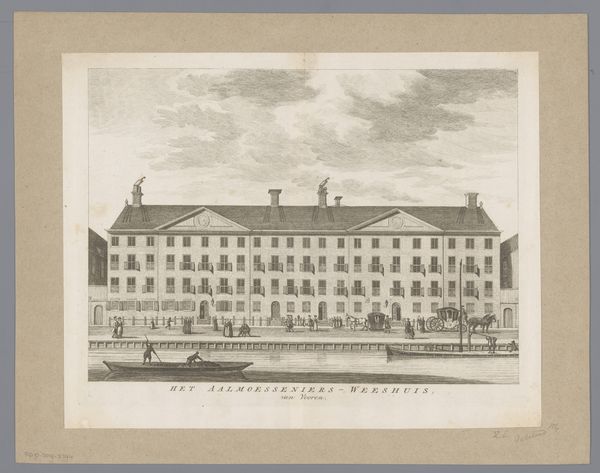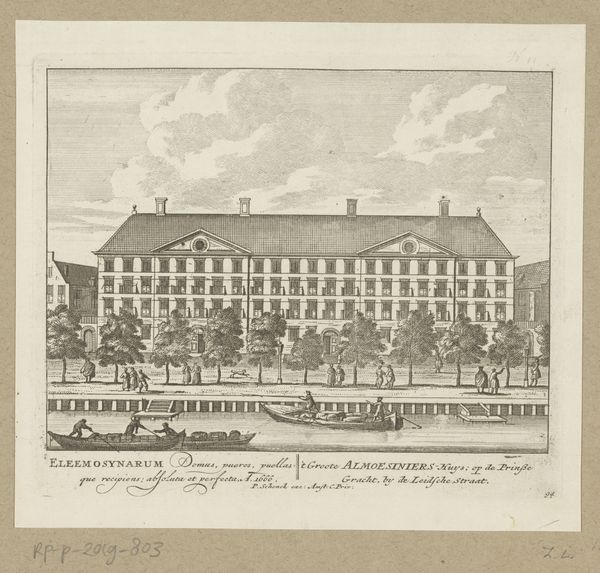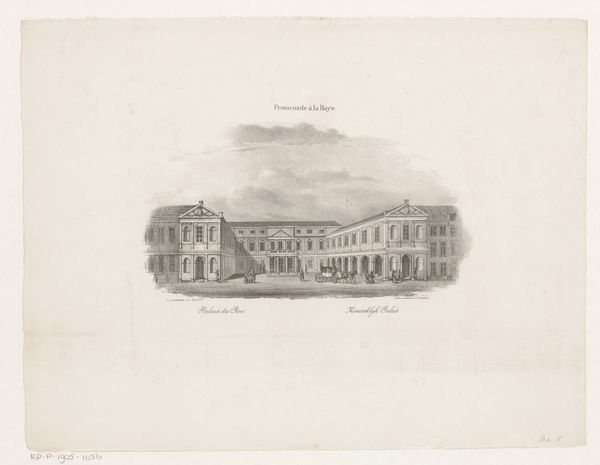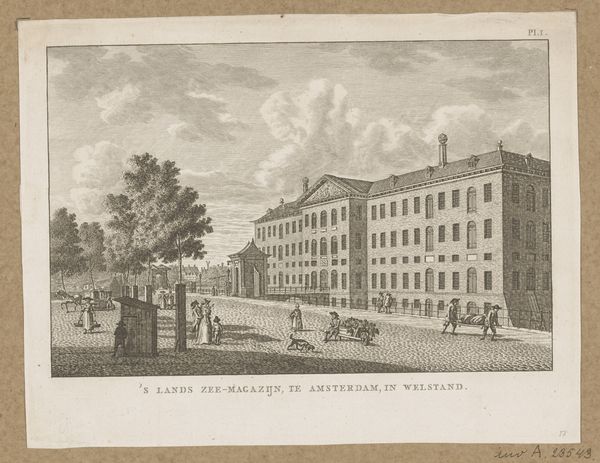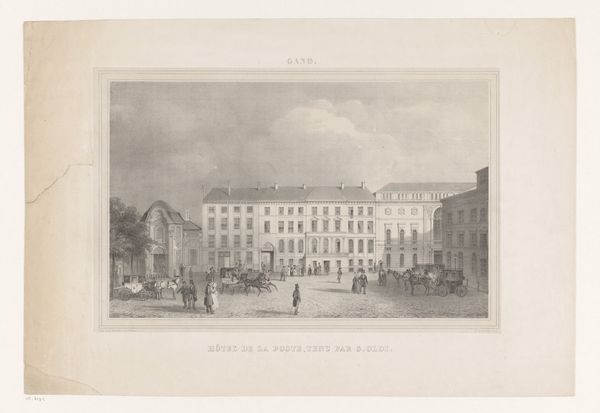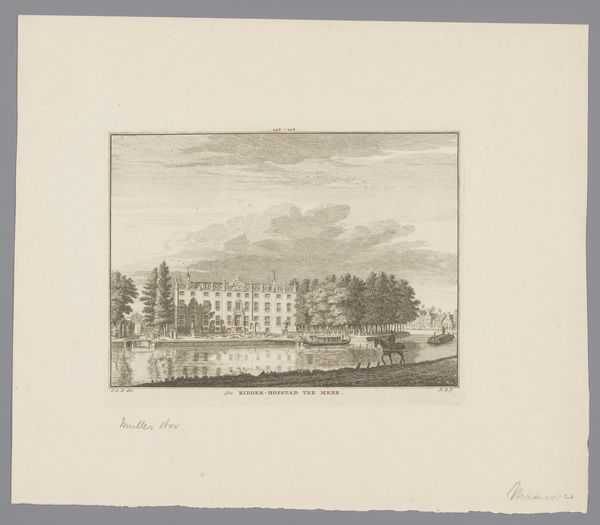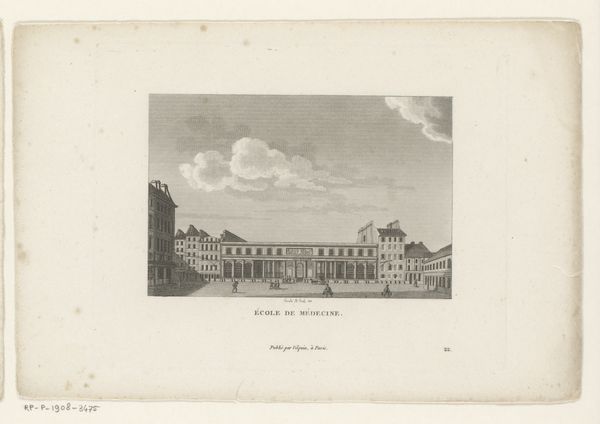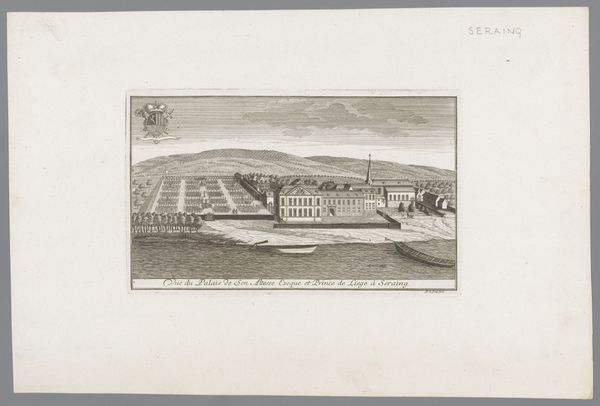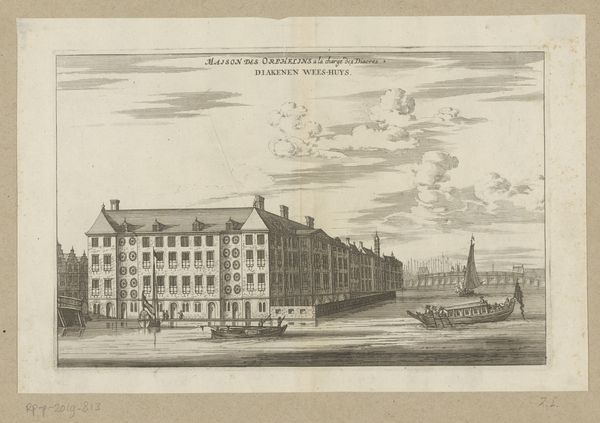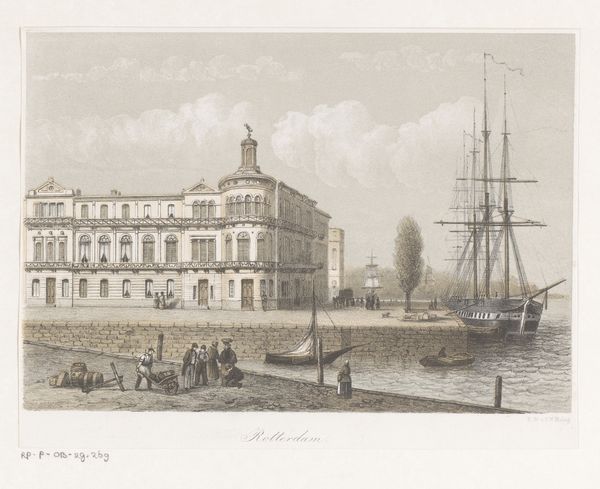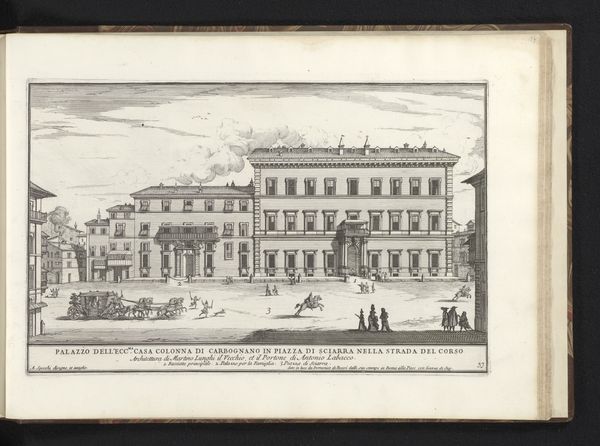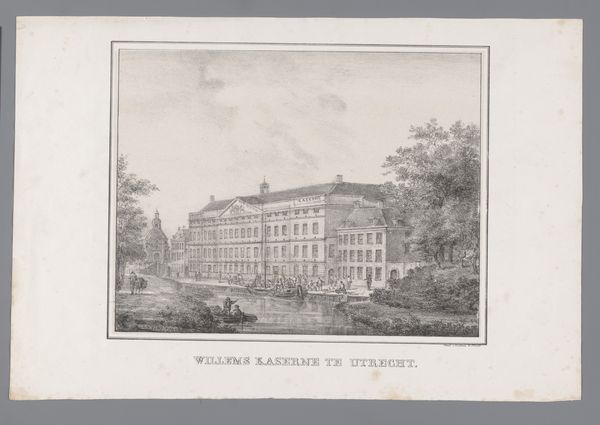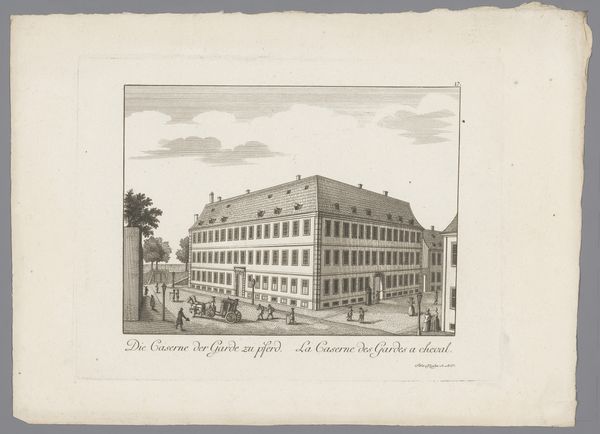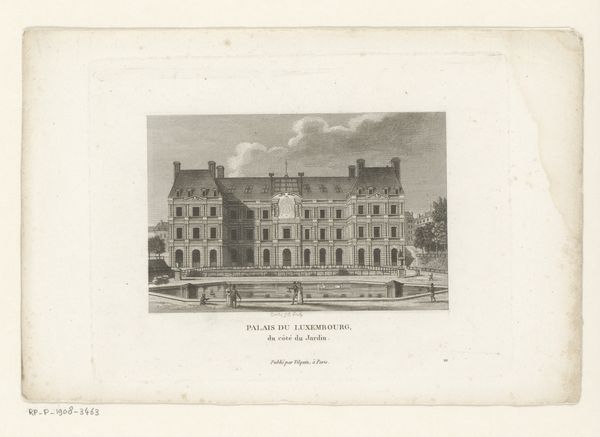
Gezicht op het Nieuwe Armenhuis of Werkhuis in Amsterdam c. 1833 - 1850
0:00
0:00
gebroedersvanlier
Rijksmuseum
print, engraving
#
dutch-golden-age
# print
#
landscape
#
line
#
cityscape
#
engraving
#
realism
Dimensions: height 155 mm, width 230 mm
Copyright: Rijks Museum: Open Domain
This print of the New Poorhouse or Workhouse in Amsterdam was made by the Van Lier brothers. Although the exact date of its creation is unknown, we can place it in a longer history of institutional architecture. From the 17th-century through the early 19th, the Dutch Republic was known for its pioneering approach to social welfare. Institutions like the workhouse emerged as a response to poverty and vagrancy. But as this image shows, it was also about social control. The building's imposing, symmetrical façade projects a sense of order and discipline. These clean, neoclassical lines are not dissimilar to those of prisons. The location next to the canal also underlines the institutional nature of the building: supplies and inhabitants could be moved easily, in or out. To understand this print, one can consult city archives, architectural plans, and historical accounts of social welfare policies. Art reveals not just what was, but what society wanted to be.
Comments
No comments
Be the first to comment and join the conversation on the ultimate creative platform.
